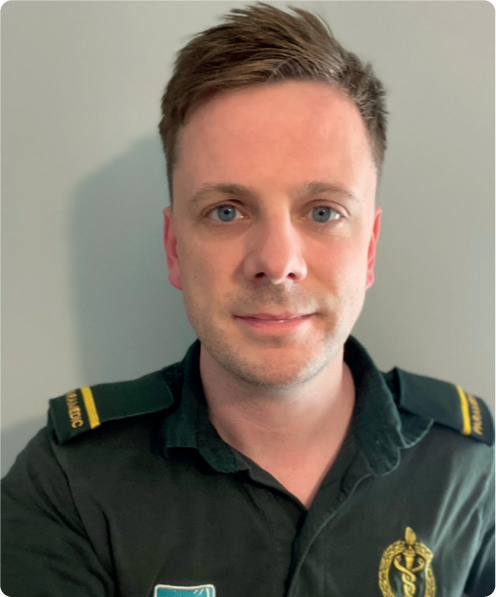
I love the job, I just hate the politics. After 2 years of feeling like I am on a sinking ship constantly trying to plug holes while taking on water—call to call, patient to patient—it is easy to see why so many become disheartened, why so many look to other avenues outside the daily grind of the ambulance service, or why some leave the profession entirely. This narrative is nothing new, the ambulance service, and indeed the NHS has faced relentless pressures for a number of years now—but as we finally emerge from the COVID-19 pandemic, it is clear that something is different. As a newly qualified paramedic (NQP), I am starting to see this manifest in longer waits outside hospital, delayed response times to our sickest patients, and even some patients dying in the back of ambulances while they wait countless hours to be triaged. For the first time in my career as a paramedic, I cannot help but feel that, despite my best efforts, I am failing my patients.
So where do I go from here? It is fair to say that the NHS has a long way to go before it achieves that ever-elusive model of sustainability so often talked about by our politicians in the run up to elections, and as we ceaselessly beat back against a looming tide of privatisation, a reasonable assumption is that it may never get there. The NHS as an idea is inspiring, and remains the envy to much of the world—free healthcare for all at the point of access. However, while increasing demand and crippling underfunding continue, it can only ever to be a reactive model, teetering on the cusp of saturation, and on the brink of collapse, relying heavily on our underpaid, and overworked healthcare staff to hold it together. I do not mean to sound defeatist, that is not me. At the core, I am still optimistic about my career as a paramedic in the NHS, and the ambulance service, and—as counterintuitive as it may seem—coming to terms with this ominous reality has helped me to move forward, and continue doing the job that I love.
In particular, I take heart from the lessons learned over the course of the last 2 years. While the pandemic unearthed many of the inadequacies within our health service that still seem to dominate the media at times, it also shone a light on the best parts of humanity, inspiring millions the world over, and exactly why our NHS is still worth fighting for today. It should never be forgotten that in the midst of uncertainty, panic, and with great risk to themselves and their families, nurses, doctors, healthcare assistants, and paramedics stepped forward in a way that no one could ever have imagined—to be there for their patients when they needed them the most. They set the tone for future generations of health professionals to follow, and it was—and still is—a privilege for me to work alongside these amazing individuals every day.
On a personal level though, if the last 2 years of NQP have taught me anything, it is that some days, and some patients, will get to you more than others. And when you do absolutely everything you can, sometimes even more than you thought you could, when you step off that ambulance at the end of shift, you have got to walk away knowing that you fought the good fight, and tomorrow you will fight another one.

